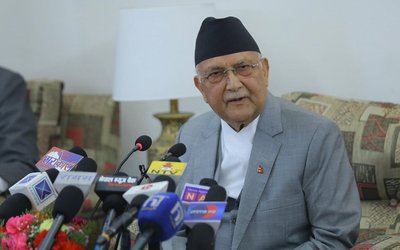
The importance of sleep for one’s mental and physical well-being has been highlighted by various studies time and again. However, a new study conducted recently has established a link between sleep and the body’s immune system. The study, conducted by a team from the University of Tübingen in Germany, has found that a good night’s sleep can boost the effectiveness of certain specialised immune cells called T cells.
The study, which has been published in the Journal of Experimental Medicine, tries to explain what lies at the core of the relationship between sleep and the body’s defenses against infection. “These immune cells recognise pathogens then activate integrins, which are a type of protein that allows T cells to attach to and tackle their targets. The researchers note that little is known about how T cells activate integrins, as well as what may prevent these cells from attaching to potentially compromised targets,” a report at the Medical News stated.
For the purpose of the study, Gs alpha-coupled receptor agonists (Gas-coupled receptor agonists) that are signaling molecules, many of which have the ability to block the action of the immune system, were observed. It was found that some Gas-coupled receptor agonists blocked T cells from activating integrins, thus preventing them from attaching to their targets.
“The levels of these molecules needed to inhibit integrin activation,” says study co-author Stoyan Dimitrov, “are observed in many pathological conditions, such as tumor growth, malaria infection, hypoxia, and stress.”
He goes on, “this pathway may therefore contribute to the immune suppression associated with these pathologies.”
“Since adrenaline and prostaglandin levels tend to drop during sleep, the scientists chose to go one step further and study this phenomenon in greater detail in human participants. They took T cells from some volunteers who slept and some who remained awake. After analysing these samples, Dimitrov and team saw that the T cells of sleeping people had higher levels of integrin activation compared with the same cells taken from people in a waking state”, Medical News stated.
“Our findings show that sleep has the potential to enhance the efficiency of T cell responses, which is especially relevant in light of the high prevalence of sleep disorders and conditions characterised by impaired sleep, such as depression, chronic stress, aging, and shift work”, co-author of the study Luciana Besedovsky said.
Courtesy: The Indian Express
- India Supported Construction Of Four Schools In Nuwakot
- Mar 19, 2021
- Nepal Denies Permission For Third Phase Trial Of Vaccine Against COVID-19
- Aug 31, 2020
- Messi Can Only Cancel Barcelona Contract If €700 Million Release Clause Is Paid, La Liga Confirms
- Aug 31, 2020
- India To Carry Out Study On Kathmandu-Raksaul Railway
- Aug 28, 2020
- COVID-19: 1,351 Personal Of Nepal Police Infected
- Aug 28, 2020















